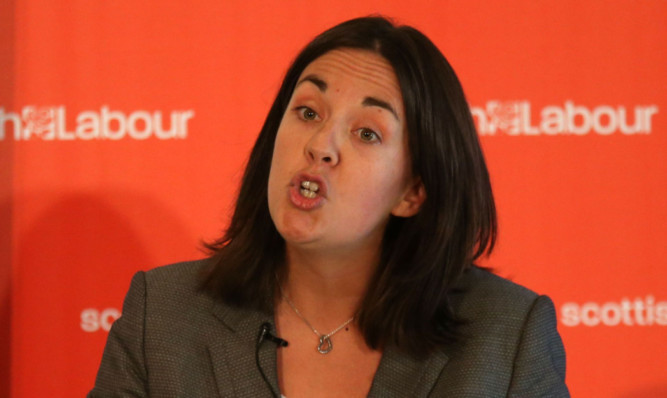It has been said that the least appealing job in British politics at present is leadership of the Scottish Labour Party but there is something worse: deputy leadership.
Jim Murphy, declared the winner last Saturday of the contest to succeed Johann Lamont, has his work cut out, to be sure, but until a Holyrood seat can be found for him and a Scottish election (or by-election) fought, he remains an MP and as such cannot lead his party in the Edinburgh chamber.
That task will now fall to his number two, Kezia Dugdale, also elected over the weekend, and a Lothian list MSP since 2011. It is Dugdale who will stand up at First Minister’s Questions to face Nicola Sturgeon, holding the fort for her boss, possibly until 2016’s Scottish election.
If the scenario of plucky female junior substituting for seasoned male overlord seems familiar, it is. Ten years ago it was Sturgeon appearing at the despatch box for the absent Alex Salmond, jousting with the then Labour First Minister Jack McConnell until the SNP leader won a Scottish parliament seat in 2007.
The experience obviously didn’t do Ms Sturgeon any harm, sharpening her political skills and earning her the respect of colleagues and opposition politicians, as well as the voting public. The SNP has had an electoral winning streak ever since, discounting the referendum, of course.
Can Ms Dugdale do for Labour what Ms Sturgeon did for the Scottish Nationalists? At 33 she is slightly younger than her SNP counterpart was when she was catapulted into the limelight, and far less practised politically. She ruled herself out of the leadership role (unlike Ms Sturgeon back in 2004, who only stood aside when Alex Salmond entered the race), saying she was more of a “sidekick” than a “superhero”, but by all accounts she is not to be underestimated.
Senior party figures, including Alistair Darling, have long rated her abilities, and she played a prominent part in the Better Together campaign, performing well in televised debates and displaying nerve when needed.
In a weekly newspaper column, she has focused on the SNP’s failings in education and, in particular, why the gap in attainment between rich and poor kids has not been addressed by the Nationalists after seven years in power.
She has also questioned what Ms Sturgeon has been doing all that time she was deputy first minister if she is only now making poverty and inequality her priority.
If Ms Dugdale sticks to policy and hammering the SNP on its record, she could score points in her early rounds. The separatists’ obsession with constitutional change at the expense of doing their day job improving the country’s schools, hospitals, transport links and justice system should make them a relatively easy target for a newly-energised opposition.
But Ms Sturgeon, flush with her coronation and fresh from a nationwide victory tour, presents a formidable challenge for any opponent, let alone one with such a limited apprenticeship. She also benefits from the support, if not adulation, of her entire party, and the legions (100,000 at the last count) of party members who think she can walk on water.
Ms Dugdale inherits a much more divided organisation, and must overcome the bitterness of the defeated Left, after their candidate Neil Findlay flopped, as well as contend with chippier by the day Nationalists.
With opinion polls suggesting a Scottish Labour wipeout at the general election in May, party activists have a clear choice: unite behind the new leadership or find alternative careers. Maybe common sense will prevail and the dire circumstances will encourage cooperation, but Ms Dugdale should not depend upon it.
She has other things in her favour. One is that the public, when they get to know her, will find her modesty a blessed relief from the Nationalists’ arrogant preening. “I know my strengths and my limits,” she has said, a rare quality in a politician, who didn’t even expect to get elected in 2011.
If she does find the frontline combat bruising, though, she should remember that the nation is suffering from political overload, its interest in the parliament is probably exhausted, at least temporarily, and she may be able to sail under the radar for a while. Good luck to her.
